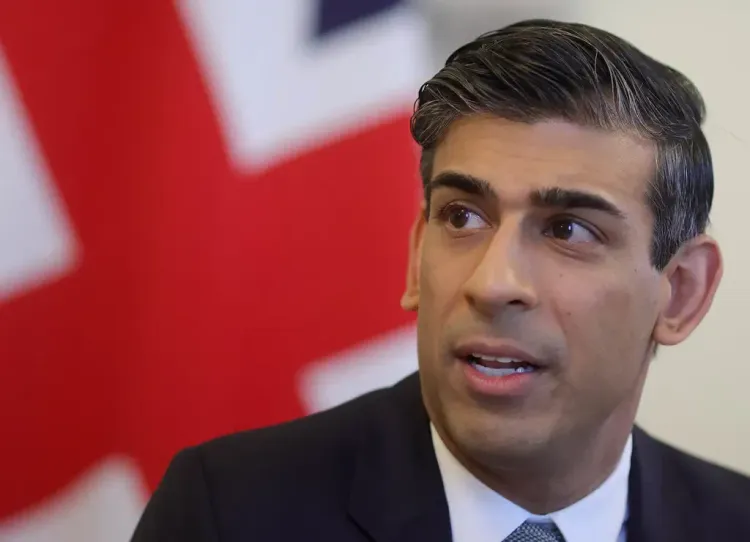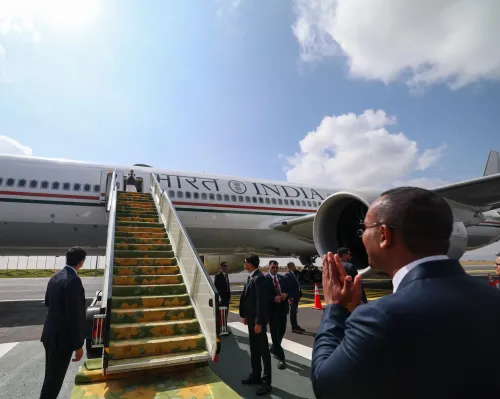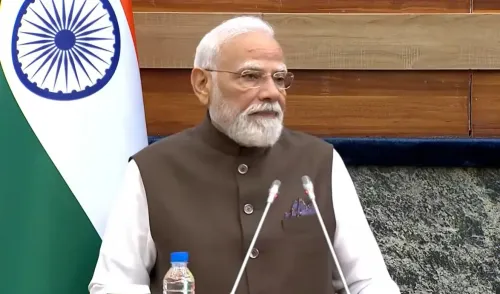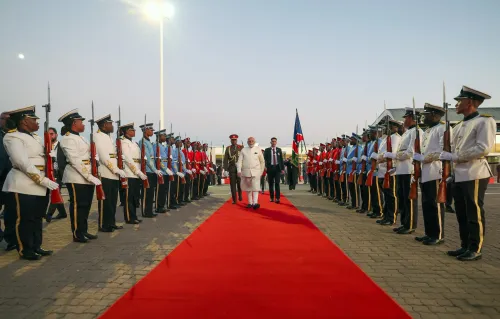Why Did Rishi Sunak Support India's Operation Sindoor?

Synopsis
Key Takeaways
- Rishi Sunak supports India's military response against terrorism.
- Operation Sindoor targeted terrorist camps in PoK.
- International reactions vary, with some countries backing India.
- India's actions have resulted in significant terrorist casualties.
- Calls for restraint underscore the need for diplomatic solutions.
London, May 7 (NationPress) Former UK Prime Minister Rishi Sunak on Wednesday defended the actions taken by Indian armed forces against terrorist camps located in Pakistan and Pakistan-occupied Kashmir (PoK), asserting that terrorists must face justice. In a message shared on the social media platform X, Sunak remarked, "India is within its rights to target terrorist infrastructure. Impunity for terrorists is unacceptable."
Following the tragic terror attack in Pahalgam, Jammu and Kashmir, which resulted in the loss of 26 innocent lives, Sunak reiterated the United Kingdom's support for India, emphasizing that "terror will never prevail."
Reuven Azar, the Israeli Ambassador to India, also expressed support for India's actions, stating, "Israel stands by India's right to self-defense. Terrorists must understand that there is no sanctuary for their atrocious acts against the innocent."
In response to the strikes under the codename 'Operation Sindoor', UK Trade Secretary Jonathan Reynolds mentioned that the UK is prepared to assist both India and Pakistan in reducing tensions.
Russia urged both nations to exercise "restraint," hoping for a peaceful resolution to the escalating situation.
France, the United Nations, and the UAE have similarly called for calm, advocating for de-escalation to maintain international peace.
During a United Nations Security Council meeting, numerous member states advocated for restraint amidst rising tensions between India and Pakistan.
As part of 'Operation Sindoor', India launched 24 missiles targeting nine terrorist installations in Pakistan and PoK, resulting in the deaths of approximately 70 terrorists. Foreign Secretary Vikram Misri, accompanied by senior defense officials Colonel Sophia Qureshi and Wing Commander Vyomika Singh, described the military action as a "calibrated and proportionate" response to the April 22 terror attack in Pahalgam.
Colonel Sophia Qureshi and Wing Commander Vyomika Singh affirmed that the Indian armed forces are fully equipped to confront Pakistan should it engage in any aggressive actions.










